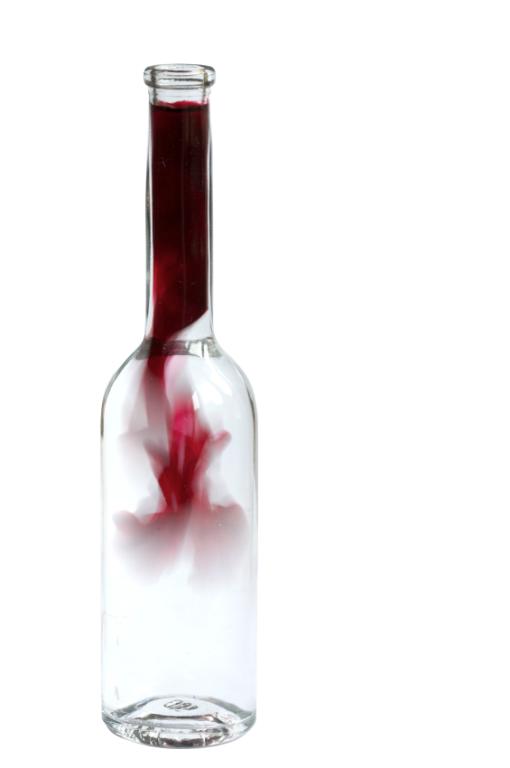 One of the striking features of Karl Barth’s theology is his emphasis on God’s freedom. For Barth, God always remains Lord in revelation. We never master God. Barth’s adherence to this emphasis helped to safeguard against presumption. While God tabernacles in the flesh, he never resides in my back pocket as a good luck charm; nor is he a genie in a bottle—my wish is not his command.
One of the striking features of Karl Barth’s theology is his emphasis on God’s freedom. For Barth, God always remains Lord in revelation. We never master God. Barth’s adherence to this emphasis helped to safeguard against presumption. While God tabernacles in the flesh, he never resides in my back pocket as a good luck charm; nor is he a genie in a bottle—my wish is not his command.
Barth’s emphasis on God’s freedom bears significance for such subjects as individual and ecclesial parochialism as well as nationalism. Regarding individual and ecclesial parochialism, Barth contended that we must return daily to the Word to be reformed by it. Whether one has in mind personal devotions or denominational affiliations, we must remember that we never master the biblical text; we must always remain students of the Bible in its witness to Christ. On a personal level, I must keep in mind that while it is good that I have a Master of Divinity degree, it is all the more important that I am mastered by Divinity. Readers of the Bible should come to terms with the reality that the God of the Bible reads them as they read the text. God is Lord in revelation. Regarding denominational affiliations, while Barth was Reformed, he did not affirm status quo thinking. He held in high regard the confessions of his tradition as well as creedal statements of the church at large; still, he engaged historical theological reflections in constructive and creative ways. Once again, his open posture was bound up with his conviction that we must return daily to be reformed by the Word.
Regarding nationalism, Barth was often critical of the political posture of Christian citizens and nation states at large. Barth’s critical engagement was nowhere more clearly enunciated than in his reaction to his theological mentors’ affirmation of Kaiser Wilhelm’s war initiative (WWI) and in his rejection of natural theology and its employment by Adolf Hitler, National Socialism, and the German Christians. The Barmen Declaration for which Barth was chiefly responsible is one of the finest theological political statements contending against the deification of the state and ethnic/national idols. Two statements stand out to me:
“We reject the false doctrine that the Church could and should recognize as a source of its proclamation, beyond and besides this one Word of God, yet other events, powers, historic figures and truths as God’s revelation.”
“We reject the false doctrine that there could be areas of our life in which we would not belong to Jesus Christ but to other lords, areas in which we would not need justification and sanctification through him.”
It is worth noting Ernst Wolf’s exegesis of the first quotation: “events” refer to Hitler’s seizure of political office in 1933, “powers” to “Blut und Boden,” “figures” to Hitler, and “truths” to the doctrines/beliefs of the “Volk.”* Barth claims, “Ist Jesus Christus das eine Wort Gottes.”** For Barth, there is no word of God that exists apart from Jesus Christ. Thus, for Barth, a person or a people cannot ascend to God through culture or race; there is no religious or spiritual import to “Nordic blood.”***
Hitler’s long gone (or so we think). But you and I (no matter our blood type) as well as nation states are still around. How free is God in your and my theology/beliefs? Do we objectify God’s revelation whereby we seek to control the Bible and turn it into a talisman? On the flipside, do we claim to go beyond where God has revealed God’s self to us in Jesus—the crucified and risen Word? What happens when we, denominations or entire nations try and trap God like a genie in a bottle? As dangerous as the answer(s) might be, do we ever consider the even more dangerous question: What happens if God breaks out?
_______________
*Douglas S. Bax, trans., “The Barmen Theological Declaration, A New Translation,” in Journal of Theology for Southern Africa 47 (June 1984): p. 79, no. 10. See Ernst Wolf, Barmen. Kirche zwischen Versuchung und Gnade (München: Chr. Kaiser, 1957), p. 104.
**Karl Barth, “Barmen,” in Protestantismus Heute, ed. Fritz Heinrich Ryssel (Frankfurt: Ullstein Bücher, 1959), p. 82.
***Barth refers to this politically and religiously potent symbol in his treatment of modernism’s relation to the rise of nationalism in the Church Dogmatics, vol. I/1, The Doctrine of the Word of God, ed. G. W. Bromiley and T. F. Torrance (Edinburgh: T. & T. Clark, 1975), p. xiv.












